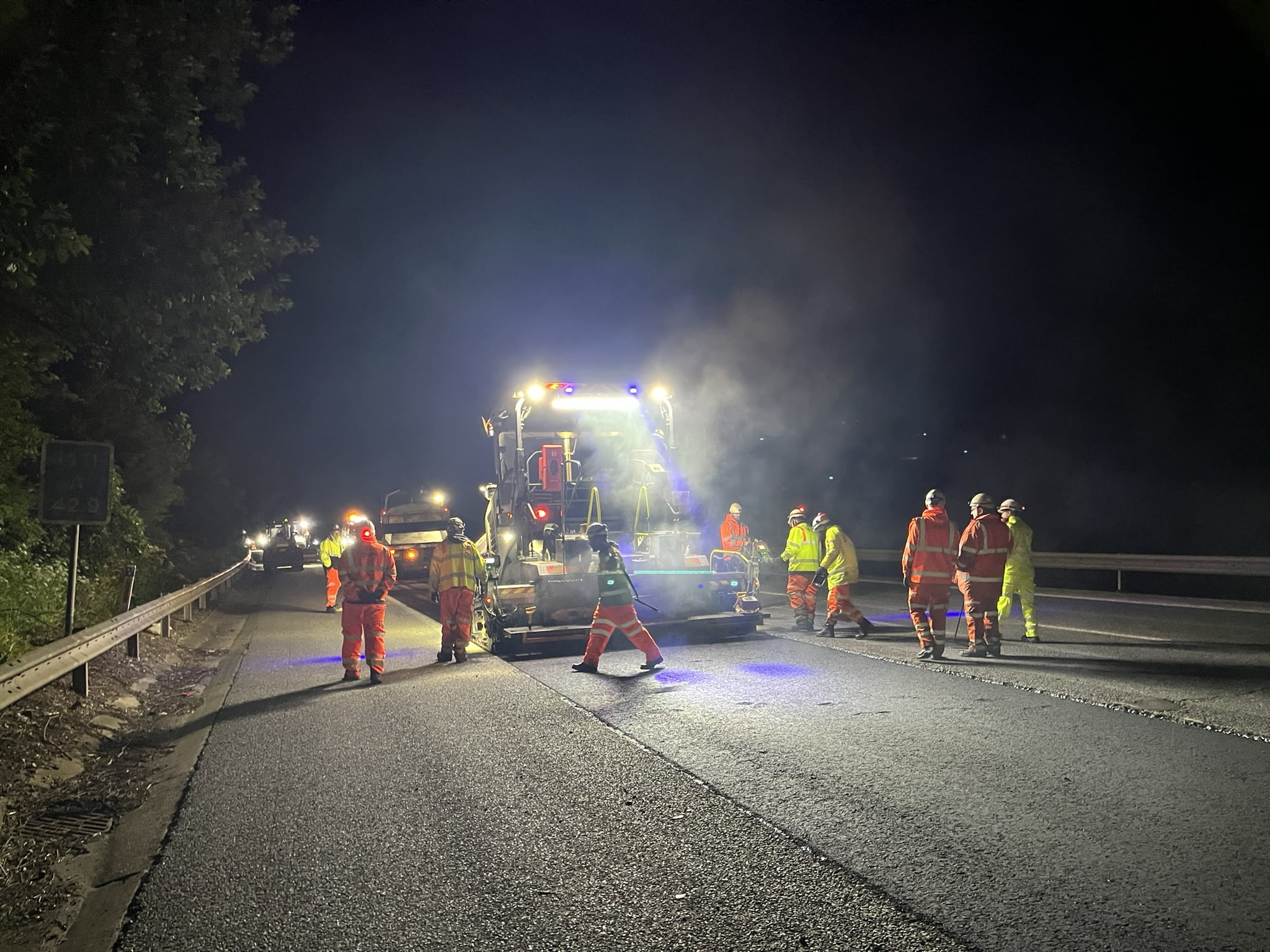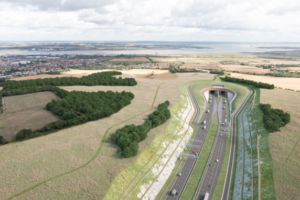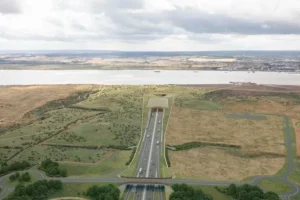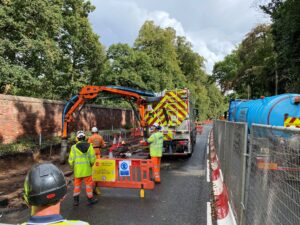A new carbon-negative aggregate is being trialled on a stretch of motorway as part of National Highways’ hunt for new and innovative solutions to help reduce its carbon footprint.
The ‘next generation’ construction material was identified in a competition run by National Highways which offered funding for projects that would help meet targets for net zero carbon in maintenance and construction.
Four firms received up to £80,000 each to make their vision a reality and now the first of those – Seaham-based company Low Carbon Materials – has been able to trial their ACLA carbon-negative aggregate on a National Highways’ road for the first time.
With the support of both Skanska and Tarmac, the trial is taking place on the northbound carriageway of the M11 in Essex and has been incorporated into essential resurfacing and maintenance work between junctions 7 and 8. Here it will be subject to ‘real world’ levels of heavy traffic and will have routine monitoring by National Highways.
Dr Joanna White, National Highways’ Research, Development and Innovation Director, said:
“Solutions like this could have a real impact on our road to net zero carbon so we are delighted that we have been able to accelerate the development of the product and get it on one of our roads for testing.
“Collaboration is the key to innovation so we are grateful for the support of our supply chain partners Skanska and Tarmac who have helped make that happen.
“Testing the asphalt in real conditions on a heavily trafficked motorway, under close scrutiny, will be far more effective in proving the durability of the product and hopefully its success.”
























